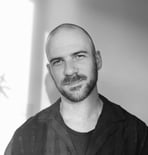Integrating experience:
Phenomenological interview training for psychedelic integration specialists.
(Phenomenology: the philosophical and scientific study of lived experience. The phenomenologist aims to describe experiences with detail and precision, while setting aside the natural tendency to interpret, explain, or evaluate beyond what is immediately apparent.)


Training at a glance.
Dates: May 12 - June 14, 2025
Time commitment: ~23.5 hours over 5 weeks.
Format: Online, with a mix of self-paced content and live sessions.
Content: Video lectures; individual exercises with feedback; live group workshops with expert supervision.
Time zone: Suitable for the Americas & Europe (live workshops: 7am PT / 10am ET / 3pm UK / 4pm CET).
Pre-requisites: Previous training and / or practice in 1-on-1, talk-based psychedelic integration.
Costs: from £540 (full details below)
Questions and registrations: email contact@jwilliamsanders.com
About.
'Integrating experience: phenomenological interview for psychedelic integration specialists' is the first training in phenomenological interview designed specifically for psychedelic integration specialists, taught by psychologist, phenomenologist, and cognitive neuroscientist James W. Sanders.
James has extensive experience studying the scientific description and measurement of the psychedelic state with Imperial College London's Centre for Psychedelic Research. The training is inspired by research methods used in this pioneering work.
By the end of this training you will be able to confidently use the phenomenological interview framework to elicit rich and systematic descriptions of your clients' psychedelic experiences, skilfully navigating different dimensions of the experience from start to finish while uncovering deeper layers that might otherwise have gone unnoticed or forgotten.
This framework is a structured yet flexible container in which your clients can:
Remember and re-embody meaningful and transformative moments of their psychedelic journeys.
Communicate the experience more deeply - through words, gesture, and more.
Practice novel and playful ways of relating to the memory of the experience.
James will also be joined by guest contributor Otto Maier, Head integration specialist at Tandava Retreats, and director of integration education at F.I.V.E. Otto will bring to the training curriculum his precious insight on how this interview framework might be used to complement other modalities and enhance the integration container.
Who is this training for?
Integration specialists, therapists, coaches, and facilitators who offer 1-on-1, talk-based integration sessions with clients, and who already have one or more base integration modalities with which they work.
You can think of phenomenological interview as an additional tool to enrich your practice. It is not a complete integration modality on its own.
Who is this training unsuitable for?
Those without prior training or experience in 1-on-1 psychedelic integration work.
Those who wish to use phenomenological interview methods to collect data for research purposes. Researchers can instead refer to trainings available through http://www.microphenomenology.com (James is also involved in offering those trainings).
What will you learn, week by week?
Foundations of phenomenology, introspection, and phenomenological self interview: learn the cultural and theoretical context within which our training is situated, and start to examine your own lived experience through a phenomenological lens.
Precision methods for phenomenological self interview: learn to explore various dimensions of the landscape of experience with precision and confidence.
1-on-1 phenomenological interview: learn to guide others in remembering and describing their lived experiences.
Phenomenological interview for psychedelic integration: build confidence in using the method to navigate others' experiences, and learn suggestions on when and how to employ phenomenological interview during integration sessions with clients.
Final assignment: demonstrate your abilities by independently conducting and recording a phenomenological interview, and receive expert feedback on it.
Reflections: students will have the opportunity to reconvene later in the summer after a break, to discuss successes and pitfalls in incorporating phenomenological interview into their 1-on-1 integration practice.
What is the weekly schedule?
Week 1 (May 12 - May 18):
Self-paced content with Sunday EOD cutoff.
Time commitment for week: approx 3 hours.
Week 2 (May 19 - May 25):
Self-paced content with Sunday EOD cutoff.
Time commitment for week: approx 3 hours.
Week 3 (May 26 - June 1):
Self-paced content with Friday EOD cutoff.
Two, three-hour, live workshops (Friday May 30, 3pm-6pm UK; Saturday May 31, 3pm-6pm UK).
Time commitment for week: approx 7 hours.
Week 4 (June 2 - June 8):
Self-paced content with Friday EOD cutoff.
Two, three-hour, live workshops (Friday June 6, 3pm-6pm UK; Saturday June 7, 3pm-6pm UK).
Time commitment for week: approx 7 hours.
Week 5 (June 9 - June 14):
Self-paced content (final interview assessment) with Sunday EOD cutoff.
Time commitment for week: approx 2 hours.
Week ? (Summer 2025, Date TBA):
Live follow-up reflection and discussion session - attendance optional with recording provided.
Time commitment for week: approx 1.5 hours.
Live workshops time zone conversion: 7-10am Pacific = 10am-1pm Eastern = 3-6pm UK = 4-7pm CET
What does the training cost?
Pricing is tiered to accommodate a range of financial situations:
Supported: £540
Standard: £620
Abundant: £700
(To help ensure this option is available to those who need it most, you will kindly be asked for a brief note on your circumstances if you are choosing the supported rate)
All amounts are given in Great British Pounds, to be paid via bank transfer or Stripe (transaction fees will be added to the training cost if paying by Stripe).
You will receive...
Access to high quality recorded lectures and written materials.
Participation in live, online workshops with expert supervision.
Private, individualised feedback on your progress at multiple points.
A final assessment to verify your new skill.
A certificate of participation upon completion of the assessment.
And more...
More about your teacher, James W. Sanders..
"Phenomenological interviewing is my specialised skill as a psychedelic researcher. I use these methods to gather descriptions of psychedelic experiences from research participants in diverse settings, from hospitals, to ceremonies/retreats, and festivals.
I have conducted a large volume of interviews across a wide range of studies, exploring DMT, continuous infusion DMT, 5-MeO-DMT, psilocybin, advanced meditation states, and more.
In addition to my research, I have extensive experience teaching phenomenological interview methods to researchers, clinicians, and students though: private group trainings; 1-on-1 tutoring and consulting; and lecturing as part of the PGCert Psychedelics: Mind, Medicine, and Culture program at the University of Exeter.
I enjoy teaching these methods as much as I know you will enjoy learning them!"
Follow this link to hear James speaking as part of a panel on the Unique Process of 5-MeO-DMT integration, a webinar hosted by F.I.V.E.


More about guest contributor Otto Maier..
Learn more about Otto through his affiliate pages and media appearances:


Contact and Registration.
To ask questions or reserve a place on the training, email contact@jwilliamsanders.com